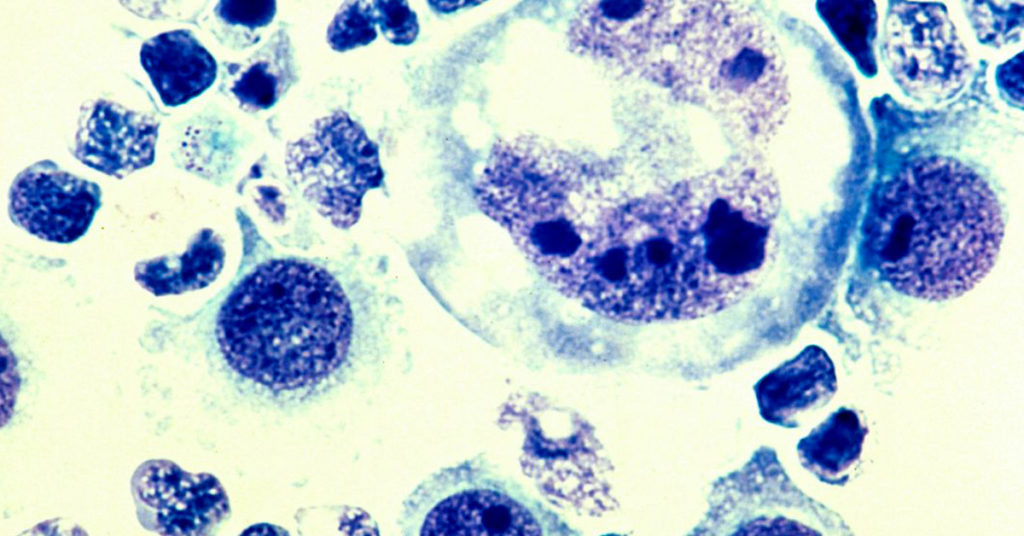This week’s Innovation Partners BioBlog focuses on oncology updates. The genome for a rare soft tissue tumor affecting infants has been sequenced, opening the doors for potential treatments. The FDA listed two initiatives targeting generic cancer drugs, and ASCO endorsed integrative oncology guidelines for breast cancer patients. This and more in the BioBlog

ASCO endorses integrative oncology guidelines for breast cancer patients
The American Society of Clinical Oncology (ASCO) publicly endorsed integrative treatments, according to a report published today in the Journal of Clinical Oncology. Integrative therapies such as acupuncture, yoga, meditation and others were reviewed by an expert panel from the Society of Integrative Oncology. The notice sends a clear signal to breast cancer patients and to oncologists: integrative approaches are fine.
Read More…
Beyond the Blueprint: More on CAP, Part B & 340B
Two specific proposals are emerging from the document issued by the Trump Administration, “American Patients First: The Trump Administration Blueprint to Lower Drug Prices and Reduce Out-of-Pocket Costs.” Both proposals might mean big changes to the acquisition and delivery of Part B drugs. Health and Human Services (HHS) Secretary Alex Azar has expressed interest in updating Medicare’s Competitive Acquisition Program (CAP) and introducing negotiation into Part B drug pricing. It remains to be seen which, if any, items will move forward.
Read More…
Cigna CFO says push to control specialty drug costs drove Express Scripts acquisition
Cigna revealed that its purchase of Express Scripts, the mail order pharmacy, was driven in large part by an effort on the insurer to control specialty drug costs. Critics of the deal have expressed concern that the merger between these two large players fewer options for consumers.
Read More…
FDA permits more expansive communication between drugmakers, payers
The FDA published final guidance that clarifies how drugmakers can share product information with payers while remaining compliant with FDA rules on communication.
The updated guidance allows for drugmakers to provide payers with certain information about unapproved drugs or unapproved uses of already cleared medicines — an acknowledgement from the FDA that payers and drugmakers may need to negotiate ahead of an approval decision to appropriately craft a value-based payment scheme.
Read More…
Anthem completes acquisition of Aspire Health months ahead of schedule
Anthem announced the completion of its acquisition of Aspire Health; the acquisition is months ahead of schedule. When completed, Anthem will own the country’s largest non-hospice community-based palliative care provider. Aspire serves 25 states and Washington, D.C.
Read More…
In a Genentech Redux, Roche Pays $2.4B for Rest of Foundation Medicine
Roche has agreed to acquire the part of Foundation Medicine it didn’t already own. Roche will pay $137 per share, or $2.4 billion, for the remaining stock of Foundation. Roche already held a majority of Foundation’s shares through an alliance announced in January 2015. Today’s purchase values the company at $5.3 billion. The deal has been approved by both companies’ boards and should close later this year.
Read More…
Genomics offers new treatment options for infants with range of soft tissue tumours
Scientists at Wellcome Sanger Institute, the University of Wuerzburg and their collaborators have discovered the cause behind infant soft tissue tumors. The genome sequencing of tumours revealed mutations which are targetable by existing drugs used to treat lung cancer and melanoma. Results of their work appeared in June 18 issue of Nature Communications and pave the way for future treatment options. Approximately 100 infants per year in the U.K are diagnosed with rare soft tissue tumors.
Read More…
FDA to Begin Updating Generic Cancer Drug Labels With New Congressional Funding
FDA Commissioner Scott Gottlieb recently announced that the agency would use $37.6 million to fund two new initiatives: the creation of a new review platform — known as the Knowledge-aided Assessment & Structured Application (KASA) platform — to modernize generic drug review from a text-based to a data-based assessment; and to update the labeling of generic drugs. Both initiatives will start with generic cancer drugs and move on to others at a later date.
Read More…




